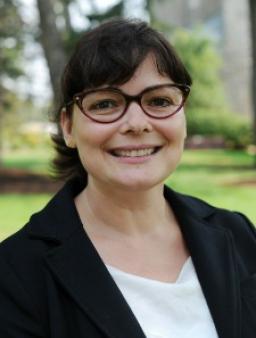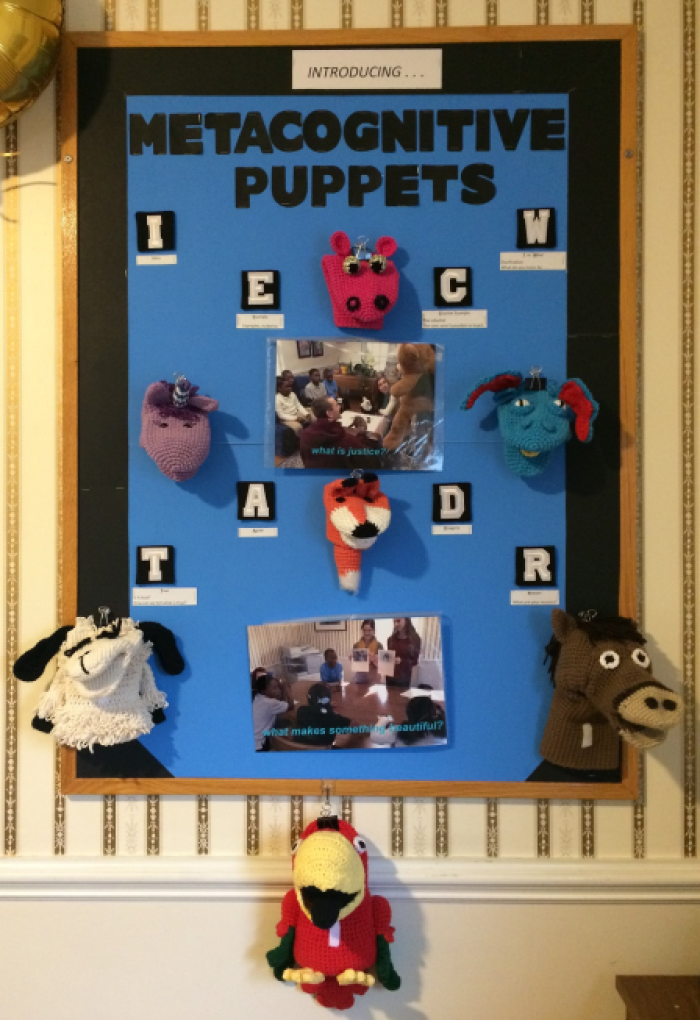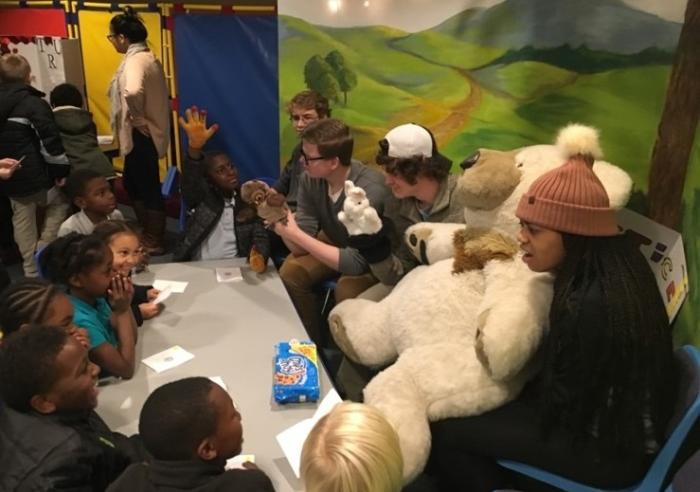
In a public elementary school in rural Maryland, an undergraduate philosophy student asks a room full of second graders a question. Are dreams real? If something can move, does that mean it’s alive? What is a good life? As students take turns expressing their points of view, they become a community of inquiry, not only thinking about the core question but also reflecting on their process of thinking, individually and as a group. With guidance from the facilitator, they ask for examples or reasons, offer evidence and counter-examples, make distinctions, work out appropriate criteria for evaluating answers, and watch for contradictions.
This process of activity-based philosophic inquiry, which Cristina Cammarano has been using in elementary schools on the Eastern Shore of Maryland since 2014, is designed to cultivate critical thinking, reading, and communication skills. Research shows that this method, first developed by Matthew Lipman and Ann Sharp at Montclair State University in the 1970s, also helps develop young people’s socio-emotional capacities, such as listening and valuing different opinions, and promotes self-esteem.
Despite all the positive outcomes associated with engaging in philosophy at a young age, it is by and large absent from American public K-12 education, save for a handful of well-resourced schools. Cammarano has been working to fill this gap through P.i.E.: Philosophy in K-12 Education. Over the past four years, the program has grown in response to requests from students, teachers, and parents throughout the district. Cammarano will use the Fellowship to launch a new phase of the program, including a summer camp for high schoolers, Philosophy Saturdays for children and families, and a summer institute to help teachers lead philosophy sessions in their own classrooms. Her ultimate goal for the Fellowship is to foster a culture of philosophy in her local community and encourage a cohort of K-12 teachers to become ambassadors in their home schools.
Cristina Cammarano is an assistant professor of philosophy at Salisbury University. Her research interests include conceptions of inquiry in relation to education, the public dimensions of philosophy, and the experience of migrants in multicultural societies. She taught high-school philosophy and history for five years in Milan before beginning her doctoral studies in Philosophy and Education at Teachers College, Columbia University.
Project: P.i.E.: Philosophy in K-12 Education

